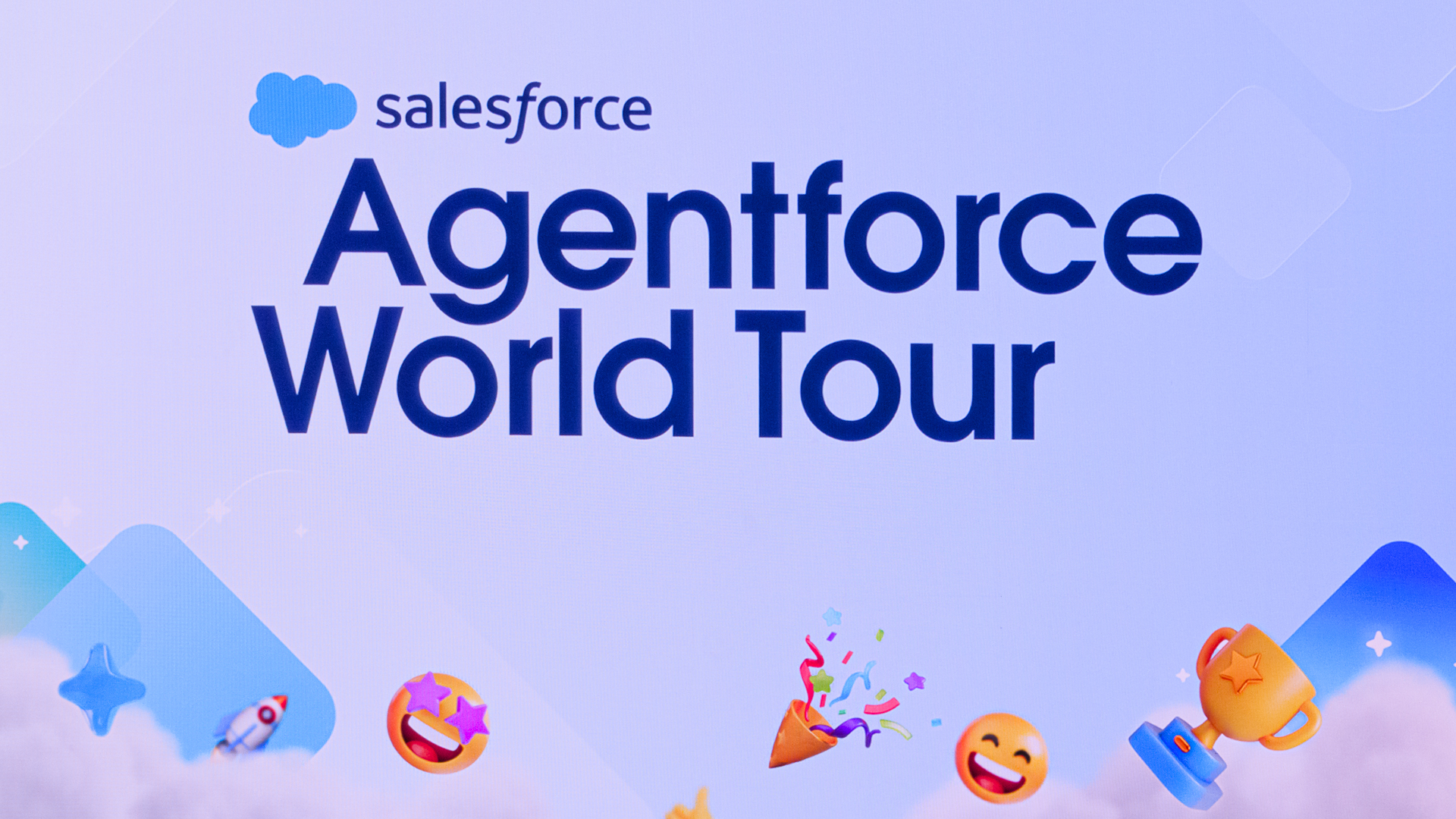‘A bold and highly strategic move’: Why Salesforce’s Informatica acquisition could be the key to Benioff’s agentic AI dream
The $8 billion deal will help bolster Salesforce's data management capabilities


Sign up today and you will receive a free copy of our Future Focus 2025 report - the leading guidance on AI, cybersecurity and other IT challenges as per 700+ senior executives
You are now subscribed
Your newsletter sign-up was successful
Salesforce’s acquisition of Informatica could be a game changer for the company’s agentic AI ambitions, according to industry analysts, but questions still remain over how it will fit under the CRM giant’s umbrella.
The $8 billion deal, announced earlier this week, will create the “most complete, agent-read data platform in the industry”, according to Salesforce CEO Marc Benioff.
By bringing it into the fold at the second time of asking, Salesforce will be combining the extensive data management expertise Informatica has to offer with its Agentforce and Data Cloud services.
Agentforce was unveiled by the company last year at its annual Dreamforce conference in San Francisco, and gives users access to a range of autonomous AI agents which can carry out tasks in place of humans.
Agentic AI has quickly become the big buzz word in the industry, with all the big players capitalizing on this trend. Agents require a vast pool of high-quality data to function correctly, however, and crucially, this data has to be relevant to the particular use-cases and domains in which enterprise users operate.
Informatica helps solve this problem for Salesforce by essentially providing a more robust data foundation from which agentic AI solutions can be deployed. The company boasts a “rich data catalog”, according to CEO Amit Walia, while similarly offering new governance and data management capabilities.
Forrester VP principal analyst Noel Yuhanna said integrating these aspects of the Informatica portfolio shows why the deal is a “bold and highly strategic move” by Salesforce, addressing a critical gap in its own data management tools.
Sign up today and you will receive a free copy of our Future Focus 2025 report - the leading guidance on AI, cybersecurity and other IT challenges as per 700+ senior executives
“The acquisition markedly elevates Salesforce’s position across all critical dimensions of modern data management, including data integration, ingestion, pipelines, master data management (MDM), metadata management, transformation, preparation, quality, and governance in the cloud,” Yuhanna said.
“These capabilities are no longer optional — they are foundational for building an AI-ready enterprise, especially as the industry accelerates toward agentic AI.”
Yuhanna added that the current agentic AI craze has created an impetus for enterprises to more tightly integrate data and AI. They’re “two sides of the same coin” now, and it’s a balancing act that can’t be ignored.
“This acquisition strengthens Salesforce’s ability to do just that, laying the groundwork for next-generation data that can power intelligent, autonomous, and personalized experiences at scale to support AI use cases,” he said.
“Crucially, this positions Salesforce to deliver a unified customer data fabric, enabling a truly end-to-end platform for data, AI, and analytics, tailored to customer-centric use cases. Real-time data integration across diverse sources is becoming critical for advanced customer engagement, and this move brings Salesforce much closer to that vision.”
Salesforce needs to nail the Informatica integration
The acquisition does raise questions about exactly where Informatica fits within the broader Salesforce ecosystem. Informatica provides data management and integration tools and operates in roughly the same domain as MuleSoft, which the company acquired for an estimated $6.5 billion in 2018.
While the two companies will complement each other post-acquisition, Gaurav Dhillon, CEO of SnapLogic and co-founder of Informatica, suggested this could create an overlap that will pose challenges for customers.
"I have at best, a mixed feeling about this. On the one hand, I understand why it might be happening and it makes sense in theory. It is a crystal clear ‘I-told-you-so’ moment for me and why I founded SnapLogic, because most enterprises are going to need one platform, for application and data integration,” he said.
“But on the other hand, it will likely create massive turmoil for Informatica (and MuleSoft) customers.
“That turmoil is inevitable when two legacy integration platforms like MuleSoft and Informatica have to be squeezed down to one; to truly get a grip on important business data about customers, suppliers and markets.”
Dhillon noted that this integration could be a “slow, painful process” that takes years, even if all goes to plan.
“This challenge is compounded because you can’t go backwards in time to pre-cloud and pre-GenAI technology.”
Yuhanna echoed Dhillon’s comments with regard to integration challenges, noting that timely execution will be vital to avoid disruption for customers.
“The ultimate success of this acquisition will depend on how quickly and seamlessly Salesforce can integrate Informatica’s capabilities into its broader data ecosystem,” he said. “The strategic rationale is clear, but execution will be the decisive factor.”
MORE FROM ITPRO
- Salesforce wants technicians and tradespeople to take AI agents on the road with them
- Salesforce may have had its ‘ChatGPT moment’ with AI agents
- Marc Benioff questions Klarna CEO's move to scrap Workday, Salesforce in SaaS ‘consolidation’ drive

Ross Kelly is ITPro's News & Analysis Editor, responsible for leading the brand's news output and in-depth reporting on the latest stories from across the business technology landscape. Ross was previously a Staff Writer, during which time he developed a keen interest in cyber security, business leadership, and emerging technologies.
He graduated from Edinburgh Napier University in 2016 with a BA (Hons) in Journalism, and joined ITPro in 2022 after four years working in technology conference research.
For news pitches, you can contact Ross at ross.kelly@futurenet.com, or on Twitter and LinkedIn.
-
 Honor MagicBook Pro 14 review
Honor MagicBook Pro 14 reviewReviews Perhaps a little too ostentatious for the office, but a solid laptop offering with great cross-OS features
-
 Lenovo wows at MWC with concepts for a modular ThinkBook and desktop AI-devices
Lenovo wows at MWC with concepts for a modular ThinkBook and desktop AI-devicesNews A new modular ThinkBook AI PC from Lenovo is the star of the show, with a delightfully versatile proof of concept
-
 ‘They’re more productive than ever’: Marc Benioff says hiring in software engineering is ‘mostly flat’ at Salesforce because of AI – but the company is expanding headcount in one key area
‘They’re more productive than ever’: Marc Benioff says hiring in software engineering is ‘mostly flat’ at Salesforce because of AI – but the company is expanding headcount in one key areaNews Salesforce CEO Marc Benioff has revealed hiring for software engineering has dipped as a result of AI, but the CRM giant is ramping up recruitment in other key areas to push its agentic agenda.
-
 Salesforce opens up Agentforce 360 for partners to drive agent development
Salesforce opens up Agentforce 360 for partners to drive agent developmentNews Salesforce has opened up its Agentforce 360 platform to allow partners to build and sell AI agents and applications.
-
 Salesforce targets better data, simpler licensing to spur Agentforce adoption – and its acquisition of Informatica is key
Salesforce targets better data, simpler licensing to spur Agentforce adoption – and its acquisition of Informatica is keyNews The combination of Agentforce 360, Data 360, and Informatica is more context for enterprise AI than ever before
-
 Appian wants to usher in the age of ‘serious AI’ where processes are automated in unglamorous places
Appian wants to usher in the age of ‘serious AI’ where processes are automated in unglamorous placesNews Founder and CEO Matt Calkin opens Appian Europe with the belief that we can do business automation better
-
 Salesforce could become the king of enterprise AI – but only if customers believe in its potential
Salesforce could become the king of enterprise AI – but only if customers believe in its potentialAnalysis At Dreamforce 2025, Salesforce painted a believable picture for enterprise AI, but shareholders will only be reassured by greater business buy-in
-
 "Do not sacrifice your entry-level jobs": Salesforce might be all in on AI, but it isn't giving up on junior workers yet – despite Marc Benioff's job replacement claims
"Do not sacrifice your entry-level jobs": Salesforce might be all in on AI, but it isn't giving up on junior workers yet – despite Marc Benioff's job replacement claimsNews Salesforce is still committed to hiring junior team members even as AI automates roles, according to UK&I chief executive Zahra Bahrololoumi.
-
 CFOs were skeptical about AI investment, but they’ve changed their tune since the arrival of agents
CFOs were skeptical about AI investment, but they’ve changed their tune since the arrival of agentsNews The introduction of agentic AI has CFOs changing their outlook on the technology
-
 Marc Benioff’s agentic AI gambit is paying dividends
Marc Benioff’s agentic AI gambit is paying dividendsAnalysis Agentforce is dominating the agenda at Salesforce – and it appears to be working